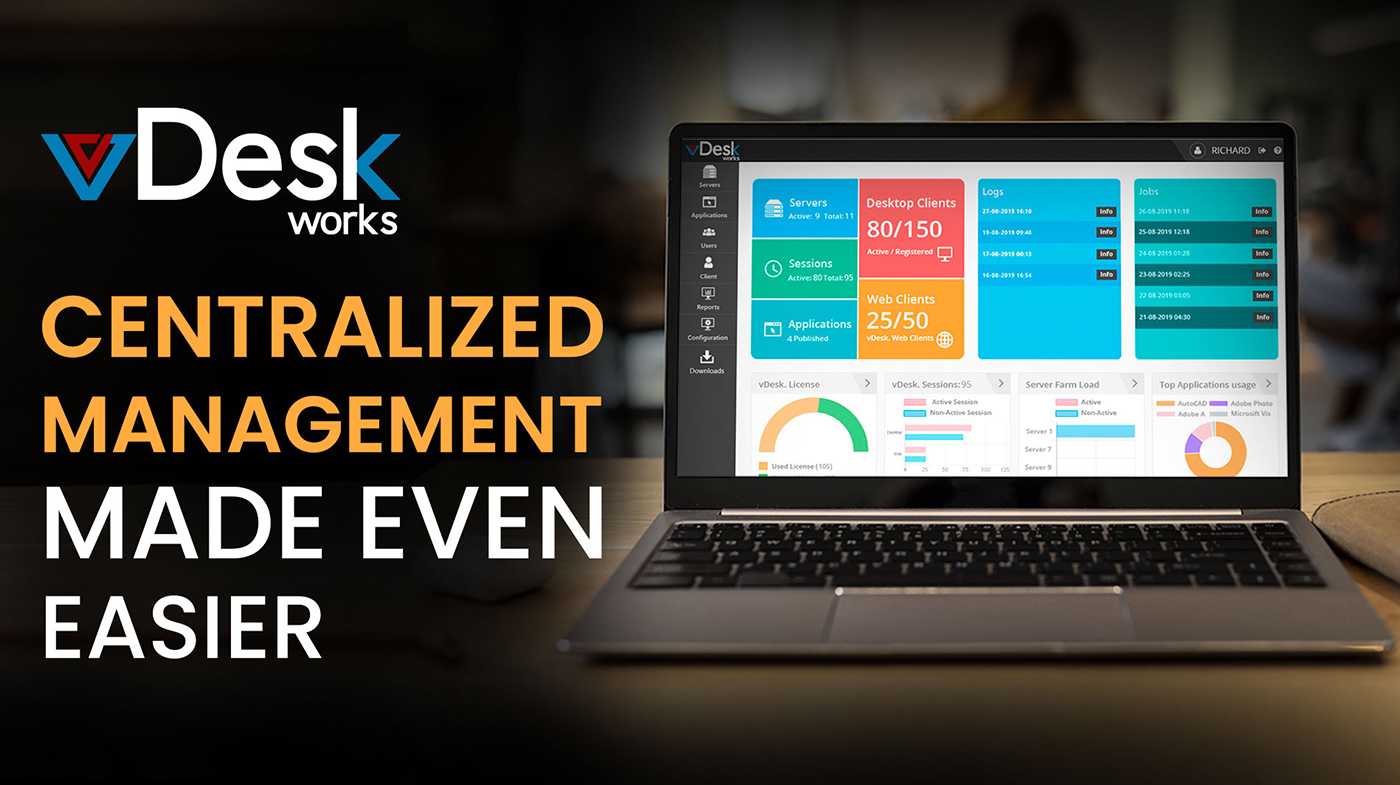In the modern world, the focus is made on cloud solutions as a way of developing the necessary flexibility and improving the IT infrastructure. DaaS is one such solution now being offered and used more often, for example, Desktop as a Service (DaaS). It is a type of cloud computing that provides a virtual desktop to the user over the internet which can be accessed from anywhere and from any device and that too for the purpose of accessing desktops and applications. In this article, you will learn what DaaS is, why more and more businesses are turning to this service, and what advantages it offers.
Let’s begin with what has been established about Desktop as a Service (DaaS).
Desktop as a Service (DaaS) is a model where vDesk.works Virtual Desktops Service is delivered to clients via the internet from a remote server managed by the service provider. Organizations can use DaaS to provide centrally hosted, managed, and controlled desktops to their users, who can access them from laptops, tablets, or smartphones. This makes DaaS not only a convenient solution but also a cost-effective one, as the service provider handles the backend infrastructure, security, and maintenance.How Does DaaS Work?
DaaS works on a very basic concept. The service provider is solely responsible for all the aspects pertaining to virtual machines, storage as well as networking. It allows the users to connect to this environment through the internet and use it in the same way as the local normal environment. They are well aware of the fact that all data and applications are stored on the cloud to meet these three requirements easily and efficiently.Key Features of DaaS
1. Scalability : DaaS is advantageous in that it provides flexibility to expand or contract depending on what a company requires. This creates a flexibility that makes it possible to manage resources depending on the needs of your business whether large or small new business.
2. Accessibility : The use of virtual desktops means that employees can work from anywhere, and promote efficient collaboration. They just need access to the internet.
3. Data Security : DaaS providers have been known to have high-end security where data is encrypted, several avenues of authentication are provided, and updates are done frequently.
4. Automatic Updates and Maintenance : The service provider is responsible for the management of software, security, and system updates, which makes IT dedicate more of their time to other core work.
5.Cost-Effectiveness : This means that through DaaS, companies are able to minimize greatly the cost of purchasing the hardware, but rather pay for the service on a per-user and per-month basis.
Benefits of Using DaaS
1. Enhanced Flexibility : The major advantage of DaaS is the flexibility that is afforded to it. It can be used by any employee from any location, and on any device, which is good for remote and hybrid working.
2. Simplified IT Management : DaaS also means that IT departments do not have to deal with extensive and, at times, complicated desktop environments anymore. It makes IT operations easier as the service provider is in charge of the maintenance, let alone security issues.
3. Business Continuity: DaaS makes certain that work doesn’t come to a standstill in the event of failures or disasters since data is stored in the cloud. The employees can easily transition back to work from a different device.
4. Improved Security: Security is a paramount consideration for all organizations and DaaS providers provide both physical and application-level security for data. Centralized data storage also reduces exposure of data loss in case of lost or stolen equipment for instance notebooks.
5. Cost Savings: DaaS does away with the need for expensive hardware to be installed on the premises, or within the organization, and the costs of maintaining the hardware and upgrading it are also done away with. The subscription model also permits costs to be anticipated and budgeted effectively in a specific period.
Use Cases for DaaS
1. Remote and Hybrid Workforces: DaaS is the best for organizations with either a distributed or blended workforce. It affords an authorized, reliable connectivity to the corporate resources regardless of the location.
2. Temporary or Seasonal Workers: Companies that use temporary employees during particular periods of the year can easily use the advantages of DaaS that allow providing and removing desktops rapidly.
3. Business Continuity Planning: An enterprise that requires an elaborate business continuity plan leverages DaaS to maintain business continuity in the event of an incident.
4. BYOD (Bring Your Own Device) Environments: DaaS can be used by organizations that support the concept of bringing your own device to help the employee use his own device but the management of data is done by the management itself.
Potential Challenges of DaaS
While DaaS offers numerous advantages, there are a few challenges to consider:
1. Internet Dependency: A stable and fast internet connection is crucial for an optimal DaaS experience. Downtime or poor connectivity can disrupt productivity.
2. Data Latency: Depending on the service provider and location, some users may experience latency issues, which could affect performance.
3. Cost Management: While DaaS is cost-effective, companies need to carefully manage subscriptions to avoid unnecessary expenses, especially if resources are not optimized.
How to Select the Right DaaS Provider
When choosing a DaaS provider, some issues to consider will be reliability, security measures, customer relations, and available flexible solutions. Assess the provider’s data centers, its backup system, and its conformity to the industry requirements. A good provider will be able to provide a package that is tailored to meet the specific needs of your business, as well as your company’s budget.Conclusion
Desktops as a Service or DaaS is changing the way that businesses approach the management of desktops. getting better control over flexibility, managing IT aspects is becoming easy, and enhanced security are some of the reasons why this cloud-based solution is being embraced by most organizations in the modern world. Since remote work is still on the rise, DaaS offers the foundation required for a flexible and dynamic workforce.For the small business that wants to cut out the overhead of an internal IT department or the large company that needs dynamic solutions for their business, DaaS is effective for operations. It might be worth your while to consider this technology as a means of preparing your business for the future and meeting the challenges of an ever-changing workplace.



